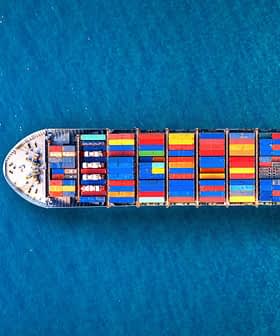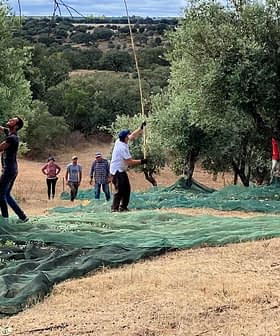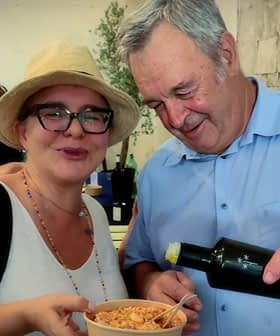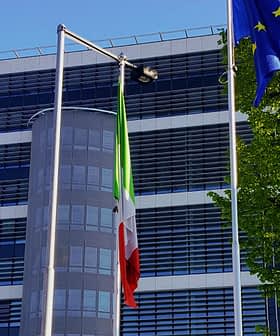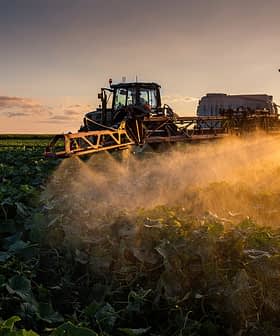Olive Council, Europe Collaborate on Limiting Contaminants in Olive Oil
The IOC has told the EU the threshold for safely being able to consume the chemical 3-MCPD, which is found in refined vegetable oils.
 Refined vegetable oils contain the chemical, 3-MCPD, which can be dangerous to human health in high concentrations
Refined vegetable oils contain the chemical, 3-MCPD, which can be dangerous to human health in high concentrationsThe International Olive Council has recommended to the EU that the safe threshold for consuming the potentially cancerous chemical 3‑MCPD esters in olive oil is 1.25 milligrams per kilogram, based on their own research and testing. The EU is revising its safety standards for 3‑MCPD esters after a UN study found different safe levels, with high concentrations of the chemical being genotoxic and potentially leading to cancer, kidney damage, and lower fertility rates in men.
The International Olive Council (IOC) has submitted recommendations to the European Union (EU) on the level of a potentially cancerous chemical that can safely be consumed in olive oil.
The supranational body that governs global olive oil quality and standards has told the EU that 1.25 milligrams per kilogram is the threshold for safely being able to consume the chemical 3‑monochloropropane diol (or 3‑MCPD esters) in olive oil.
The EU did not have enough data for olive oils and therefore there would have been the risk for olive oils to be included in the 2.5 milligrams per kilogram group.
3‑MCPD esters are inadvertently added to some vegetable oils and processed foods during the refining process.
“The EU did not have enough data for olive oils and therefore there would have been the risk for olive oils to be included in the 2.5 milligrams per kilogram group,” the IOC General Secretariat announced in its monthly newsletter.
See Also:Olive Oil Quality NewsDepending on the type of fat in a particular vegetable oil, 3‑MCPD esters have not been found to be harmful in concentrations beneath either 2.5 milligrams per kilogram or 1.25 milligrams per kilogram.
“In particular, the data clearly showed that virgin olive oils do not contain any quantifiable amount of this toxic compound, thanks to the absence of any refining process,” the report said.
Olive oil pomace and refined olive oils were found to have a threshold of 1.25 milligrams per kilogram by the IOC, which asked both in-house researchers and member countries to independently test the safety thresholds before passing the results along to the EU.
The EU is in the process of revising its safety standards on the tolerable daily intake of 3‑MCPD esters after a separate study done by the United Nations Food and Agricultural Organization (FAO) came to a different conclusion than that European Food Safety Authority’s (EFSA) original study did.
“EFSA decided to review its assessment after the UN’s Joint FAO/WHO Expert Committee on Food Additives subsequently established a different safe level,” Christer Hogstrand, the chair of the scientific group that did the original study as well as the revised study, said.
Consuming 3‑MCPD esters in high concentrations has been shown to be genotoxic, meaning that it can cause cancer. The UN’s report also found that 3‑MCPD esters can cause kidney damage and lower fertility rates in men.
“We checked again the data concerning effects on development and reproduction, particularly on male fertility as these were highlighted by [the report],” Hogstrand said. “We calculated the levels at which possible adverse effects on the kidney and on male fertility could occur. The updated tolerable daily intake is protective for both types of effects.”
The IOC discussed its findings on the safety thresholds of 3‑MCPD esters at this year’s Council of Members meeting, which was held in Morocco.
At the meeting, the organization also discussed methods to measure the presence of mineral oils and Polycyclic Aromatic Hydrocarbons (HAPs) in olive oil, both of which can be found in the environment and are carcinogenic in high enough concentrations.
“All these contaminants are basically everywhere, but it is important to work toward a reduction to guarantee the lowest possible presence,” the IOC said.
To wrap up the meeting in Morocco, the IOC discussed results from a 2018 ring-test on the determination of pesticide residues. The organization said that they will continue these tests to determine the maximum residue limits that will be allowed in olive oils and other olive products.
“It was also highlighted that more information is needed regarding the transformation factor of pesticides from the field application to the final product, and therefore more laboratories will be contacted in order to ask for data, for future discussion at the IOC and to be potentially provided to the EFSA,” the IOC said.



